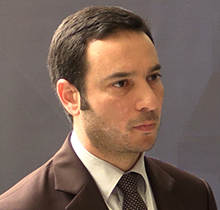Improving access to finance and social cohesion in MENA
The Covid-19 crisis is exacerbating income inequalities in the Middle East and North Africa, pushing many vulnerable people into poverty and causing bankruptcy for multiple micro-enterprises and small and medium-sized enterprises. This column explores some financial innovations to help address these huge challenges, particularly focusing on improving access to finance for individuals and small businesses.
Financial systems in MENA: time to embrace digital technologies
The growing use of digital technologies in financial services provision holds promise for MENA countries to improve their financial systems and promote greater financial inclusion. This column explores the potential of such innovations as mobile money platforms and crowdfunding to help unleash the region’s economic potential.


